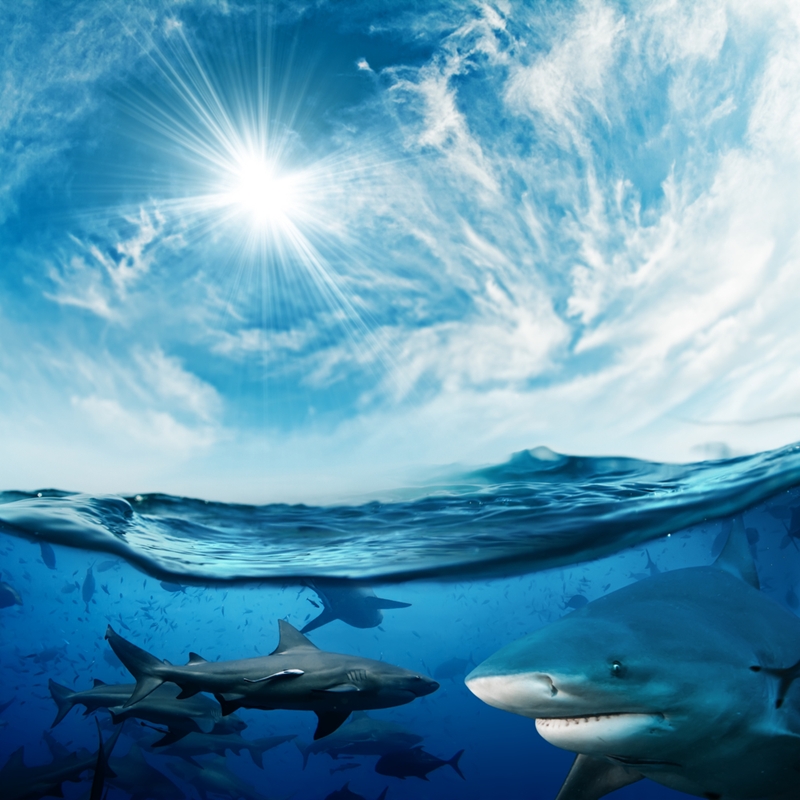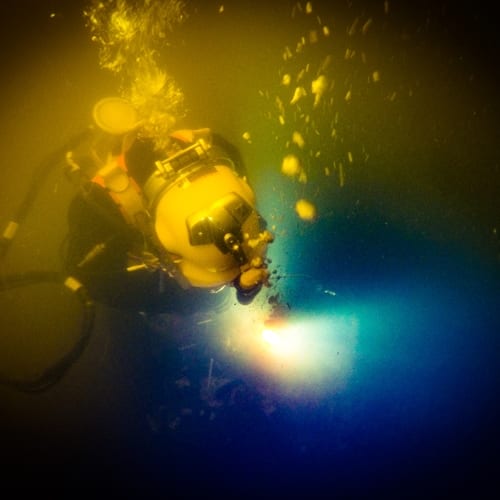Commercial diving is the ideal career arc for the prototypical jack-of-all-trades. It requires a deft hand in manual labor-related tasks, adroit photography skills, welding proficiency and, of course, an enjoyment of life below the surface. For the most part, though, everything that commercial divers are required to do is taught in training.
But there are lesser known elements to commercial diving that aren't taught in the classroom and may only be discovered after a number of years in the business. Veteran commercial divers David Harrison Beckett and Ron Null – speaking to The Telegraph and Occupational Outlook Quarterly, respectively – recently recounted their careers in the industry and what they didn't know before taking the plunge.
Nothing is routine
Commercial diving is not your typical 9-to-5 job, according to Null. While there are conventional elements to the tasks that jobs require, what you're doing one day could be entirely different the next, not to mention the environment.
"Usually we're construction workers," Null explained to Occupational Outlook Quarterly. "The tasks we do are routine. But it's not a routine environment."
He added that those who are able to adjust to different situations are in a better position to thrive.
Cramped quarters are common
With the vast majority of the Earth covered in water, swimming in the depths of the sea may seem like the ideal career arc for lovers of elbow room. But saturation diving brings new meaning to claustrophobia, noted Beckett.
"The idea is to keep divers on the job 24 hours a day, because they don't need to spend time returning to the surface and decompressing," Beckett told The Telegraph. "You sleep in the chamber, wake up as others finish their shift, travel to the work site via a diving bell, complete a 6-8 hour shift (although I regularly did 14 hours on the trot) and then swap over."
Even when the job is done, Beckett further stated, the confined space life continues, needing to "sort [all] those bubbles out" in a decompression chamber. In short, know your tolerance threshold to small spaces.
Claustrophobia, a condition characterized by individuals' inability to enter enclosed areas without experiencing emotional distress, is somewhat common, affecting between 5 and 10 percent of the world's population, several studies suggest. However, only a fraction of these people actually seek treatment from a psychologist or psychiatrist.
Scratching itches doesn't come easily
Feeling an itch come on? Scratching the nettlesome area is a quick solution. But that's next to impossible as a commercial diver, simply because of all the equipment that these professionals have to wear.
"Commercial diving suits are not those flashy little numbers you see in the red sea diving resorts," Beckett quipped. "They're basically heavy machinery, containing a constant flow of hot water which pumps around the suit to stop you from freezing."
Commercial divers certainly have a plethora of equipment to wear, all necessary to be protected from cold water temperatures and the oxygen-free environment that they inhabit. In addition to a wetsuit that extends from head to toe, other accessories include reinforced latex gloves, rubber cuff rings, goggles, fins and a helmet, among others.
As for how to scratch an itch when conditions don't permit it, experts say looking into a reflective surface may provide relief, the Daily Mail reported.
Good oral hygiene is crucial
Dentists recommend brushing and flossing at least two times per day, ideally after meals, to keep teeth healthy and strong. And this is an especially important reminder for commercial divers. Beckett recounted how once when he was in a decompression chamber, he lost a filling during the oxygen normalization process. Fortunately it wasn't painful, but that may not be the case for others who go through a similar experience. Beckett recommended taking care of any issues before doing a dive because decompression may exacerbate the problem area.
Decompression sickness is a serious issue that divers can experience if they're not careful. The most common type of dysbarism, DCS usually occurs when ascending to the surface too quickly.

Sharks sightings may take place
Hard things become easier the more they're done, but that general rule of thumb doesn't always apply. This is particularly true when it comes to sharks, Beckett recalled.
"Sharks are scary, even the little ones," Beckett told the U.K.-based periodical. "If they like you, they won't eat you, but they have a way of always making you feel nervy."
Indeed, shark attacks are very rare. According to data compiled by National Geographic, the U.S. averages one deadly shark incident per year. By way of comparison, lightning strikes kill 37 Americans annually.
Perhaps because dangerous aquatic life can lurk in areas that commercial divers work, some consider the industry to be uniquely risky. But Null told Occupational Outlook Quarterly that there's nothing to worry about, so long as divers do as they're instructed during safety training.
"If you don't pay attention, you can get yourself into a dangerous situation," Null explained. "But the job is not inherently dangerous."
Beckett talked about a few other "discoveries" he's learned in his three decades in the industry, which can be found at The Telegraph's website.
Commercial diving is like any other job – it has its advantages and disadvantages. The employee benefits most definitely fall in the advantage category. Fisk Marine Insurance International provides insurance coverage that commercial divers not only need, but want, including medical, life, disability, vision and dental. Employers can fill out our submission for more details on benefits and coverage services.


